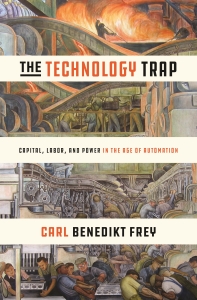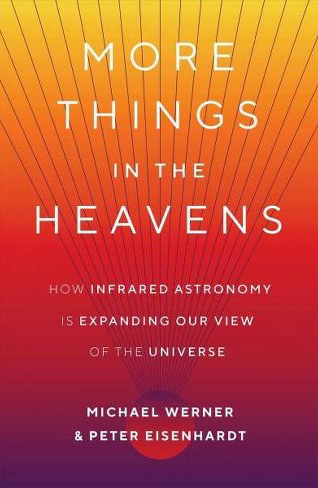“The Technology Trap” and the Future of Work with Dr Carl Frey
An intriguing set of questions that is being explored by researchers across the globe and is being discussed and brainstormed in various organisations and think tanks is: “what is the future of work”; “how forthcoming AI and Automation revolution will impact on the nature and structure of work”; and “what would be the impact of these changes on the fabric of society from social, economic and political perspectives”.
In a 2013 study “The Future of Employment: How Susceptible are Jobs to Computerisation?” researchers Dr Carl Benedikt Frey and Dr Michael Osborne made an important observation: about 47% jobs in the US will be lost to automation. Dr Carl Frey is the co-director of programme on technology and employment at Oxford Martin School at Oxford University. His research focuses on “how advances in digital technology are reshaping the nature of work and jobs and what that might mean for the future”. In 2016, he was named the 2nd most influential young opinion leader by the Swedish business magazine Veckans Affärer.
A recent book by Dr Carl Frey presents a thorough review of the history of technological progress and how it has radically shifted the distribution of economic and political power among society’s members. The title of the book is “The Technology Trap: Capital, Labour and Power in the Age of Automation”. The Industrial Revolution was a defining moment in history, but few grasped its enormous consequences at the time. This books demonstrates that the lessons of the past can help us to more effectively face the present and the forthcoming AI and automation revolution.
Dr Carl Frey shows the Industrial Revolution created unprecedented wealth and prosperity over the long run, but the immediate consequences of mechanization were devastating for large swaths of the population. Middle-income jobs withered, wages stagnated, the labour share of income fell, profits surged, and economic inequality skyrocketed. These trends, Frey documents, broadly mirror those in our current age of automation, which began with the Computer Revolution.
Just as the Industrial Revolution eventually brought about extraordinary benefits for society, artificial intelligence systems have the potential to do the same. But Frey argues that this depends on how the short term is managed. The decisions that we make now and the policies that we develop and adopt now will have profound impact on the future of work and job market. In the nineteenth century, workers violently expressed their concerns over machines taking their jobs. The Luddite uprisings joined a long wave of machinery riots that swept across Europe and China. Today’s despairing middle class has not resorted to physical force, but their frustration has led to rising populism and the increasing fragmentation of society. As middle-class jobs continue to come under pressure, there’s no assurance that positive attitudes to technology will persist.
Dr Carl Frey joins me for this episode of bridging the Gaps. In this podcast we discuss the ideas that Dr Frey presents in this book. Before discussing the future of work, we look at the history of work and how the nature of work evolved through various ages and how did it impact the equality in the society. Dr Frey notes in his book that the age of inequality began with the Neolithic revolution; we discuss this in detail. We then discussed first and second industrial revolutions and the age of digital transformation. We also discuss the rise of politics of polarisation and finally we discuss the future of work. This has been a fascinating conversation with a thought leader, on a hugely important subject.
Complement this with discussions on Artificial Intelligence and the future of humanity by visiting “Artificial Intelligence: Fascinating Opportunities and Emerging Challenges” with professor Bart Selman and discussion with professor Toby Walsh “2062: The World That AI Made”.



Connect With Us